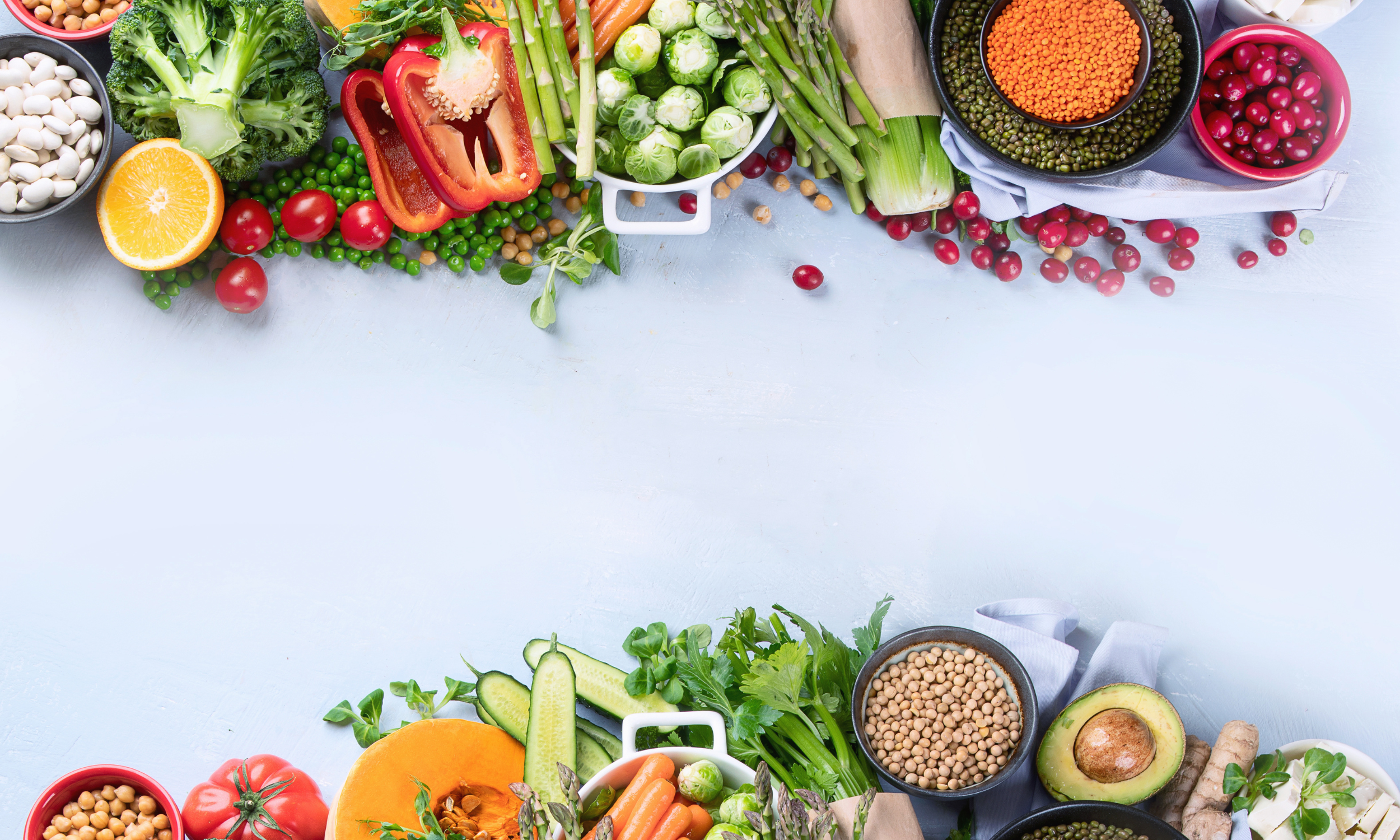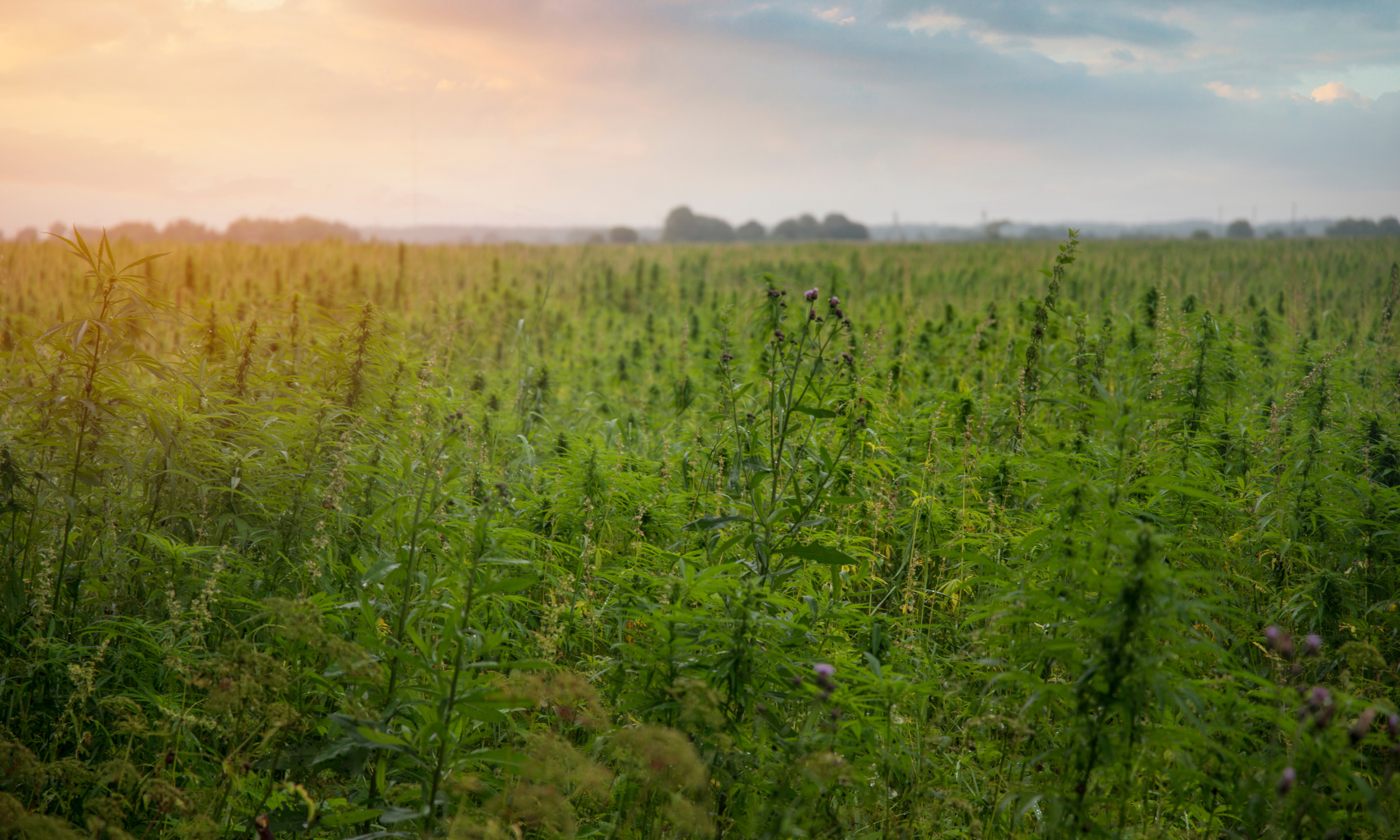
Plant-Based Diet Is Not Just About Being Vegan
The concept of a plant-based diet has gained immense popularity in recent years, with more people recognizing its potential health and environmental benefits. However, there's a common misconception that a plant-based diet is synonymous with veganism. While veganism is a subset of plant-based eating, the term encompasses a much broader spectrum of dietary choices. In this blog, we will explore the diversity within plant-based diets and shed light on the fact that being plant-based doesn't necessarily mean being vegan.

Plant-Based vs. Vegan
Plant-based and vegan diets share a common core principle: emphasizing plant foods as the foundation of one's diet. However, the key distinction lies in the level of exclusivity. Vegans strictly avoid all animal products, including meat, dairy, eggs, and even honey, whereas those following a plant-based diet are more flexible. Plant-based individuals may occasionally consume small amounts of animal products, typically in a conscientious and mindful manner. This flexibility allows for a more gradual transition, making plant-based diets accessible to a wider range of people.

Health and Environmental Considerations
Plant-based diets, in all their variations, offer numerous health and environmental benefits. Research indicates that increasing the consumption of plant-based foods can reduce the risk of chronic diseases such as heart disease, diabetes, and certain cancers. Moreover, plant-based diets tend to have a lower environmental impact, as they require fewer resources and produce fewer greenhouse gas emissions compared to diets rich in animal products. Whether one chooses to be vegan or adopt a more flexible plant-based approach, the potential benefits for personal health and the planet are significant.
The environmental impact of our food choices is a growing concern, and plant-based diets are often lauded for their eco-friendliness. These diets tend to have a lower carbon footprint since they require fewer natural resources and produce fewer greenhouse gas emissions compared to diets rich in animal products. By embracing plant-based eating, individuals contribute to a more sustainable and planet-friendly food system.

Sustainable Food Choices
Plant-based diets align seamlessly with sustainable food choices. They encourage the consumption of locally sourced, seasonal produce, which not only reduces the environmental impact of food transportation but also supports local farmers and communities. By choosing plant-based foods that are in season and grown nearby, individuals reduce the carbon footprint associated with long-distance food transportation. This not only contributes to lower greenhouse gas emissions but also helps conserve energy and natural resources. Furthermore, supporting local farmers fosters stronger local economies and ensures a more resilient food system that is less susceptible to global supply chain disruptions.

Cultural Diversity
Plant-based diets showcase a remarkable cultural diversity in their culinary traditions. For instance, the Mediterranean diet and various Asian cuisines incorporate an abundance of plant-based foods. Exploring these cultural variations not only adds excitement and flavor to one's plant-based journey but also highlights the global appeal and adaptability of plant-based eating. It's fascinating to see how different cultures have developed unique and flavorful plant-based recipes over centuries, demonstrating that plant-based diets are not limited to one specific culture or region. This diversity allows individuals to experience a wide range of flavors and cuisines while still adhering to a plant-based lifestyle.

Plant-Based Alternatives
The rise of plant-based alternatives to traditional animal products has revolutionized the accessibility and enjoyment of plant-based diets. These alternatives mimic the taste and texture of meat, dairy, and other animal-based products, making the transition to plant-based eating more convenient and appealing. Plant-based burgers, sausages, dairy-free milk, and cheese substitutes have become widely available and are often indistinguishable from their animal-based counterparts in taste and texture. This development in plant-based food technology has opened up new culinary possibilities and made it easier for individuals to reduce their reliance on animal products, addressing concerns about health, animal welfare, and the environment. These plant-based alternatives cater to the diverse preferences of individuals, whether they are seeking a healthier lifestyle, ethical food choices, or simply a change in their culinary experiences, making plant-based eating more inclusive and accessible to a broader audience.

Practical Implementation
Transitioning to a plant-based diet doesn't necessitate an overnight transformation of eating habits. It's a journey that can begin with small, manageable steps. Individuals can start by incorporating more fruits, vegetables, whole grains, legumes, and nuts into their meals while gradually reducing the consumption of animal products. This approach allows for experimentation and adaptation according to individual preferences and dietary needs. Whether someone chooses to remain flexitarian, embrace a vegetarian diet, or fully commit to veganism, a plant-based diet can be tailored to their specific goals and values.
Transitioning to a plant-based diet doesn't require an abrupt and drastic change. Many people opt for a gradual transition, perhaps starting with meatless Mondays or incorporating more plant-based meals throughout the week. This flexibility allows individuals to adapt at their own pace and find a balance that suits their tastes and needs.
It's essential to recognize that a plant-based diet encompasses a wide range of dietary choices beyond veganism. While veganism represents a strict and committed form of plant-based eating, the plant-based movement is characterized by its inclusivity and adaptability. Individuals can choose the level of plant-based eating that aligns best with their values and lifestyles, making it a sustainable and attainable choice for many. By embracing a plant-based diet, whether partially or wholly, one can contribute to their own well-being and the health of the planet.

Power of Protein & Nutrition
Protein is an essential component of our diet, and there's a common misconception that it's challenging to obtain enough protein on a plant-based diet. In reality, plant-based diets can be rich in protein, provided you make mindful food choices. Legumes like beans, lentils, and chickpeas are protein powerhouses, and they're versatile enough to be incorporated into a variety of dishes. Tofu and tempeh, both derived from soybeans, are excellent sources of plant-based protein and can be used to create delicious and satisfying meals. Nuts and seeds, such as almonds, chia seeds, and hemp seeds, not only offer protein but also provide healthy fats and a host of vitamins and minerals. By including these foods in your diet, you can meet your daily protein needs while enjoying the benefits of a plant-based lifestyle, such as reduced risk of chronic diseases and a smaller environmental footprint.
Boost your plant-based journey with Hemplete's premium organic hemp protein powder. Elevate your nutrition with our versatile products, perfect for smoothies and brunch waffles. Make eco-friendly choices while enhancing your well-being – explore Hemplete today!
For top-notch hemp protein recommendations, check out HEMPLETE!
References:
- Tuso, P. J., Ismail, M. H., Ha, B. P., & Bartolotto, C. (2013). Nutritional update for physicians: plant-based diets. The Permanente Journal, 17(2), 61-66. Read more
- Willett, W., Rockström, J., Loken, B., Springmann, M., Lang, T., Vermeulen, S., & Murray, C. J. L. (2019). Food in the Anthropocene: the EAT–Lancet Commission on healthy diets from sustainable food systems. The Lancet, 393(10170), 447-492. Read more
- Harvard T.H. Chan School of Public Health. "The Nutrition Source: Plant-Based Diet." Link
- Tuso, P. J., Ismail, M. H., Ha, B. P., & Bartolotto, C. (2013). "Nutritional Update for Physicians: Plant-Based Diets." The Permanente Journal, 17(2), 61-66. DOI
- The Vegan Society. "What is Veganism?" Link
- Food and Agriculture Organization of the United Nations. "Livestock's Long Shadow: Environmental Issues and Options." Link
- Mangels, R. (2019). Protein in the Vegan Diet. The Vegetarian Resource Group. Link
- Harvard T.H. Chan School of Public Health. (2021). The Nutrition Source: Protein. Link
- Craig, W. J., & Mangels, A. R. (2009). Position of the American Dietetic Association: vegetarian diets. Journal of the American Dietetic Association, 109(7), 1266-1282. Link



Leave a comment
This site is protected by hCaptcha and the hCaptcha Privacy Policy and Terms of Service apply.